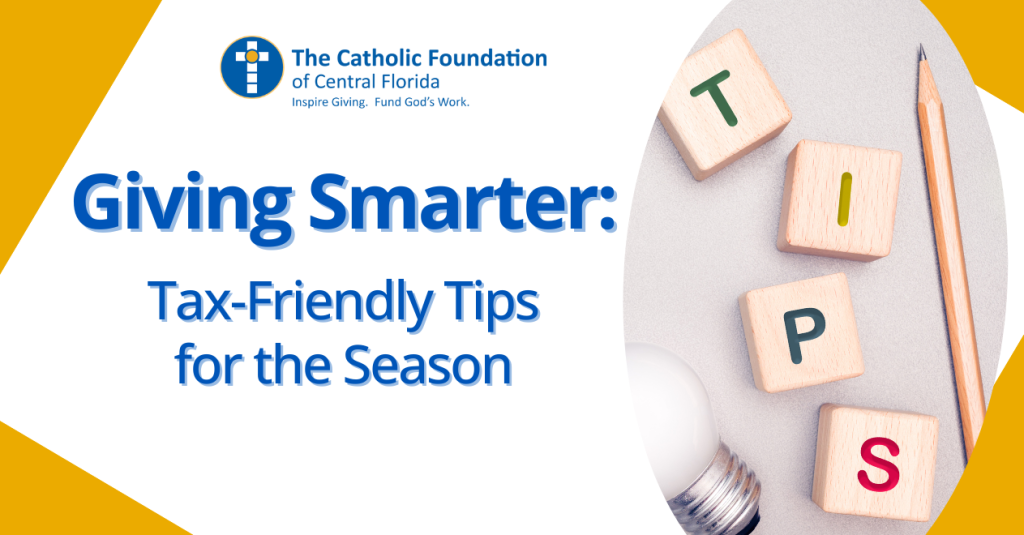
As the end of the calendar year approaches, here are some important facts and timelines to ensure your generosity makes the greatest impact—and benefits your tax planning:
1. Key Deadlines for Gifts
- Check Donations: Must be postmarked by December 31, 2024, to count for this tax year.
- Online Gifts: Complete by 11:59 PM on December 31, 2024.
- Stock Transfers: Initiate by December 22, 2024 (or earlier) to allow time for processing before the 31st.
- IRA Charitable Rollovers: Complete direct transfers by December 31, 2024. Contact your IRA custodian well in advance to avoid delays.
- Credit Card Donations: Must be processed by December 31, 2024, even if the bill is paid later.
- Donor-Advised Fund Contributions: Contributions to your DAF must be made by December 31, 2024, to qualify for a deduction this year.
2. Tax Deduction Guidelines by Gift Type
- Cash Gifts: Deductible up to 60% of adjusted gross income (AGI).
- Appreciated Assets (Stocks, Mutual Funds, etc.): Deductible at fair market value up to 30% of AGI, with no capital gains tax owed on the appreciation.
- Donor-Advised Funds (DAFs): Contributions to a DAF allow for an immediate tax deduction, even if the funds are distributed to charities later. This is a strategic option for “bundling” donations or when you are unsure which charities to support before year-end.
- “Bundling” charitable contributions is the practice of making larger-than-normal charitable donations in one year to maximize the tax benefits.
3. Streamline the Process
- Gather Documentation: Ensure you have receipts or written acknowledgments for all gifts over $250 to claim deductions.
- Use Employer Matching: If your company offers a matching gift program, check the deadlines to submit a match request.
- Bundle Contributions: If you’re itemizing deductions, consider “bunching” multiple years of donations into this calendar year to exceed the standard deduction threshold.
4. Consult with a Professional
- Talk to your financial advisor or tax professional to confirm the best strategies for your situation. Each giving option can have different implications depending on your overall financial plan.
By keeping these tips in mind, you can ensure your year-end giving is impactful and aligned with your personal and financial goals.
